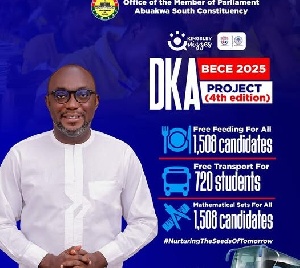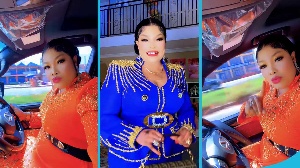Business News of Tuesday, 15 April 2025
Source: www.ghanawebbers.com
The Global-Generational Manager: Critical first steps for leading diverse teams in African contexts

Diverse teams have great potential. McKinsey's Africa Business Insight study shows that companies with cultural and generational diversity are 37% more likely to outperform their industry peers in Africa (McKinsey Africa, 2024).
However, this potential is largely untapped. Only 26% of African organizations effectively manage cross-cultural and cross-generational teams (PwC Africa Workforce Study, 2024).
For new managers, the first 30 days are crucial. Research from the University of Cape Town shows that leaders who establish effective team dynamics early achieve 43% higher engagement scores and 31% lower turnover rates over the next year (UCT, 2023).
This article discusses essential steps for new managers leading diverse teams in African business contexts.
### Understanding Today's Diverse African Workplace
The modern African workplace faces unique diversity challenges. It often includes five generations: Traditionalists (3%), Baby Boomers (22%), Generation X (30%), Millennials (38%), and Generation Z (7%) (African Labour Statistics, 2024).
These generations developed their work identities in different contexts. They range from colonial times to today's digital age.
Additionally, Africa's rich cultural diversity adds complexity. According to the Pan-African Leadership Survey (2024), 72% of teams in fast-growing companies include members from at least three ethnolinguistic backgrounds.
Dr. Nana Osei from the University of Ghana explains that managing cultural and generational diversity creates both challenges and opportunities. Effective management leads to better problem-solving and innovation metrics suited for local market needs.
A Lagos Business School study found that organizations with high cultural and generational diversity report innovation revenue that is 23% higher than those with less diversity (LBS, 2023).
### Approaches to Managing Diverse Teams
Effective management approaches draw from global research as well as African-specific frameworks. Cultural intelligence remains important but must be complemented by understanding ethno-linguistic diversity and colonial histories' impact on workplaces (University of Pretoria, 2023).
Generational dynamics also differ in African workplaces compared to global patterns. The African Leadership Institute found all generations share core values like community but differ in hierarchy views and technology adoption (ALI, 2023).
The LEAD research program highlights how leadership effectiveness varies across cultures in Africa. Participative leadership works well in egalitarian cultures while consensual approaches may be preferred elsewhere (LEAD Africa, 2024).
Gallup's studies reveal that team members need clarity, purpose, recognition, and development—though these needs manifest differently across groups and regions (Gallup Africa, 2024).
### Actionable Steps for New Managers
Cultural Mapping: Your first week should focus on understanding your team's makeup. Create a "cultural signpost" document collaboratively with your team.
Use a worksheet to map preferences on feedback styles or conflict resolution methods. This guide will help navigate daily interactions.
Hold one-on-one "listening tours" asking three questions: What motivates you? How do you define respect? What communication style helps you perform best?
Direct conversations yield practical insights about individual preferences shaped by culture or generation.
Effective Communication: Clear communication is critical within diverse teams. MTN Workplace Analytics found intentional communication guidelines lead to fewer misunderstandings and faster project completion by up to 18%.
Key strategies include:
1. Cultural Awareness Training: Regular sessions promote empathy among team members.
2. Multilingual Resources: Provide translations for key materials.
3. Adaptive Communication Channels: Use platforms effective across various technologies.
4. Clear Norms: Define expectations around communication styles.
5. Feedback Mechanisms: Create channels acknowledging cultural differences.
These practices should be documented and updated regularly for ongoing inclusivity.
### Building Trust Across Generations
Research indicates relationship-building is vital in African business contexts where trust precedes transactions (AMI, 2023). Younger generations prioritize transparency while older ones value traditional respect (Edelman Africa, 2024).
Trust-building mechanisms vary across cultures but emphasize communal connection and respect for elders while evolving with younger generations' perspectives.
Successful managers create structured opportunities for relationship-building while respecting cultural protocols during initial interactions.
### Leveraging Diversity for Innovation
Teams leveraging their diversity generate significantly more locally relevant innovations when specific protocols ensure all voices are heard (Strathmore Business School, 2024).
Dr. Wanjiru Kamau-Rutenberg emphasizes "perspective rotation" as effective—having team members lead discussions based on their backgrounds ensures diverse viewpoints are centered without marginalization.
Successful diverse teams create systems for surfacing assumptions based on differences while documenting varied approaches alongside indigenous knowledge.
As workplaces diversify culturally and generationally, navigating this complexity becomes essential for leadership success in Africa’s economic future.
Are you ready for transformation? Dzigbordi Kwaku-Dosoo is a Ghanaian business leader focused on helping executives reach peak performance through skill integration for personal growth.










